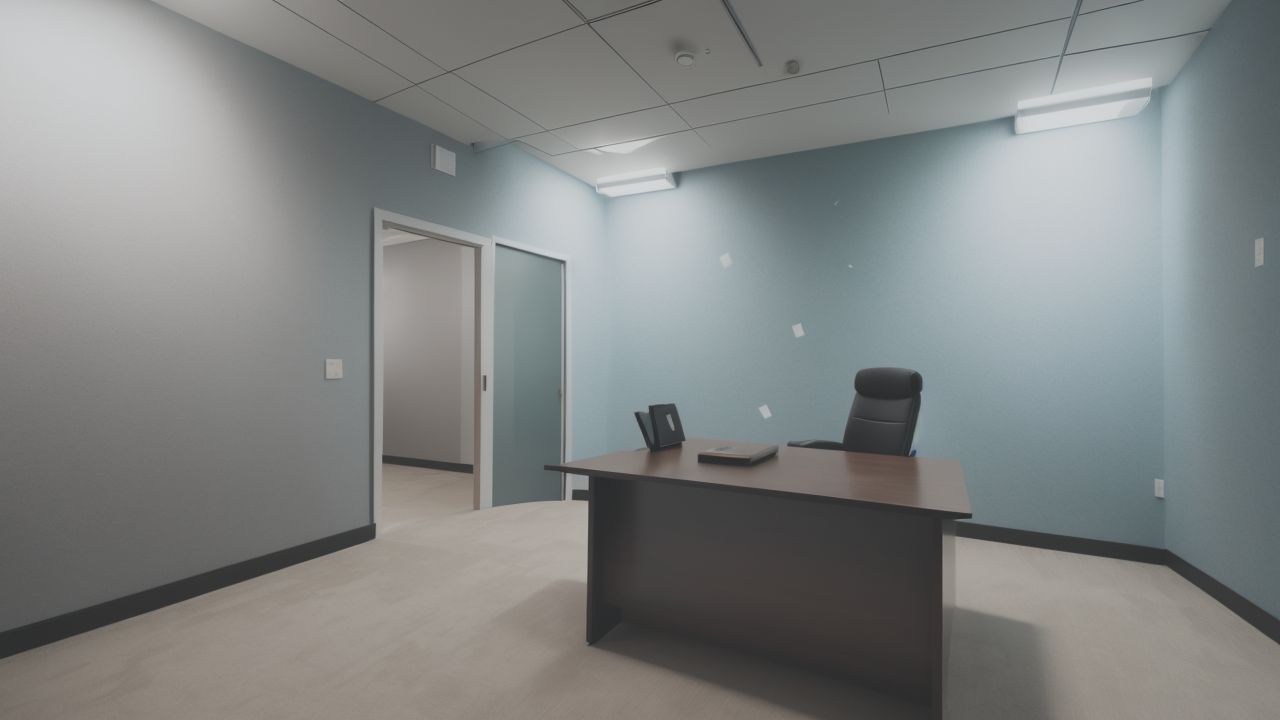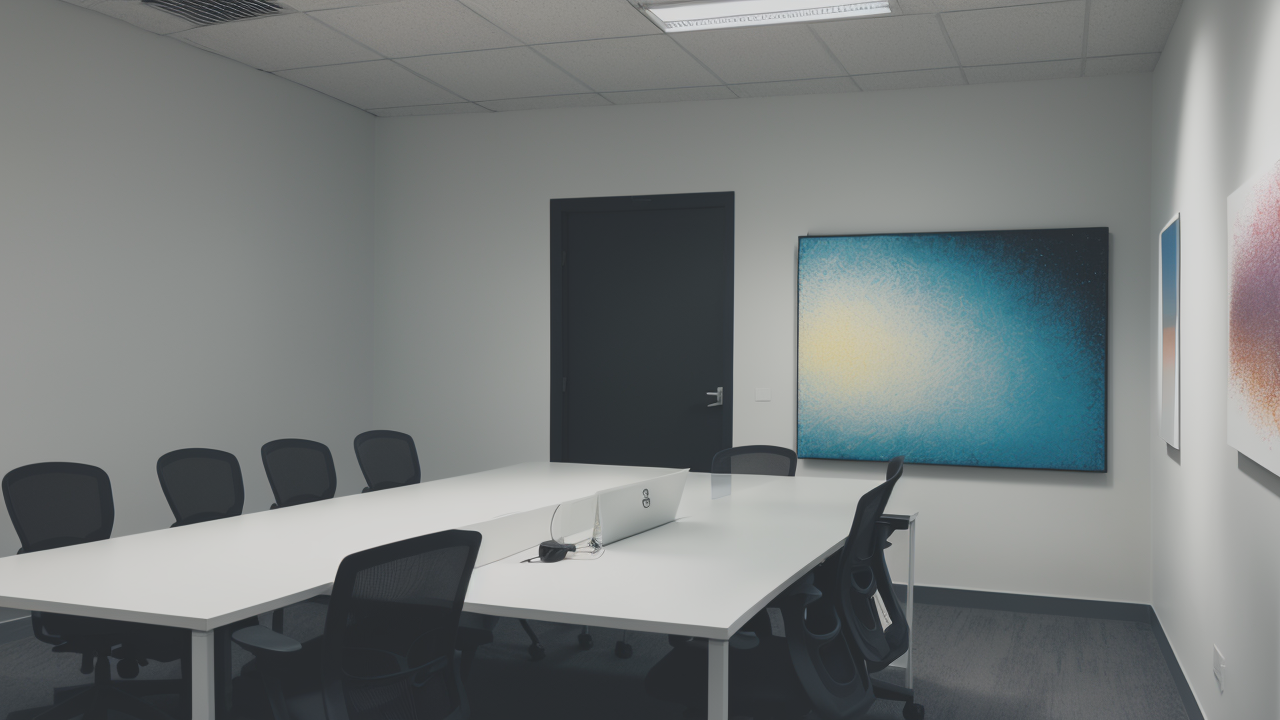
Mastering Oil Painting Textures: A Comprehensive Guide
Introduction to Minimalist Office Design Trends
The Rise of Minimalism in the Workplace
Minimalism is becoming more popular in offices. It's not just about looks. It's about creating better

work spaces. Many companies are choosing simple designs for their offices. They want less clutter and
more focus.
Why is this happening? People are tired of busy, messy offices. They want places that help them think
clearly. Minimalist design does this. It removes distractions. It creates a sense of calm.
Big tech companies started this trend. Their offices have open spaces and simple desks. They don't have
many decorations. These offices look modern and efficient. They show that the company is up-to-date.
Employees often like these spaces. They find them less stressful. The clean look can be inspiring. It
can make people feel more professional. This style works for many types of businesses.
Minimalist offices are here to stay. They're not just a passing trend. They offer real benefits for
workers and companies. As more businesses see these benefits, the trend is likely to grow.
How Minimalist Design Enhances Productivity and Well-being
Minimalist design does more than look good. It can make people work better and feel better. How? By
creating a calm, focused place to work. When there's less stuff around, people can think more clearly.
This leads to better work.
These spaces can also lower stress. A tidy office feels less overwhelming. Workers feel more in control.
This can improve mental health. It can also make people like their jobs more.
Minimalist offices often have more natural light. This is good for health and mood. It can help with
sleep and vitamin D levels. Better lighting can reduce eye strain and headaches. All these things help
create happier, healthier workers.
The simple design can boost creativity. With less clutter, there's more room for new ideas. People can
think more freely. This can lead to more creative solutions at work.
Overall, minimalist design creates a better work environment. It helps people focus, feel good, and do
their best work. This is why more companies are choosing this style for their offices.
Incorporating Plaster Art Texture Painting in Modern Workspace
Understanding the Role of Texture in Office Interiors
Texture is important in minimalist offices. It adds depth without adding clutter. Plaster art texture

painting is perfect for this. It creates interest without being too bold. This fits well with minimalist
design.
Texture can make plain walls look alive. It adds character to simple spaces. In a minimalist office,
this is key. It stops the space from feeling too plain or cold. Plaster art can add warmth and style.
Different textures create different moods. Smooth textures feel calm and modern. Rough textures add
energy and interest. By choosing the right texture, you can shape how people feel in the office. This
can affect how they work and interact.
Texture can also help with sound. Some textures can absorb noise. This is useful in open offices. It can
make the work environment more pleasant and less noisy.
Plaster art texture can mimic oil painting textures. This brings a touch of art to the office. It can
make the space feel more high-end and creative. This is great for impressing clients and inspiring
employees.
Selecting the Right Plaster Art Texture for Your Office
Choosing the right plaster art texture is important. It should match your office's overall look and
feel. Here are some things to think about:
- Your office's color scheme
- How much natural light you have
- Your company's culture and brand
- What each space is used for
For a productive workplace, think about subtle textures. These add interest without distraction. In
meeting rooms, bolder textures might inspire creativity. For reception areas, elegant textures can
impress visitors.
Remember, balance is key. One textured wall can be enough. It can be a focal point without being too
much. The goal is to enhance the minimalist design, not overpower it.
Think about the long-term impact. Some textures are easier to clean or update. Consider maintenance when
making your choice. The right texture should look good for years to come.
Oil painting textures can be a good choice. They add depth and richness. They can make the office feel
more artistic and high-end. This can be great for creative businesses or those wanting to impress
clients.
Case Studies: Successful Minimalist Makeovers
Real-World Examples of Texture Painting in the Workplace
Let's look at some real examples of successful minimalist office makeovers. These show how texture

painting can change a space.
Case Study 1: Tech Startup in San Francisco
This company wanted a modern, creative office. They used a subtle wave pattern on one wall. The texture
was gentle but added depth. It worked well with their sleek furniture. Employees said the new space felt
more inspiring.
Case Study 2: Law Firm in New York
This firm updated their traditional office. They chose a classic, linear texture for the lobby. It added
a touch of elegance without being flashy. Clients noticed the modern yet professional feel.
Case Study 3: Design Agency in London
This agency went for a bold look. They used a geometric texture in their brainstorming room. The pattern
was eye-catching but not distracting. Team members said it helped spark new ideas.
These examples show how texture can improve different work environments. Each company chose a texture
that fit their needs and style. The results were more productive and appealing workspaces.
In each case, the texture added value to the space. It made the offices more interesting and pleasant to
work in. This shows how important texture can be in office design.
Impact of Artistic Elements on Employee Engagement and Brand Image
Artistic elements like texture painting can greatly impact a workplace. They affect both employees and
company image. Here's how:
Employee Engagement:
- Better mood: Beautiful surroundings can make employees happier.
- More pride: Unique office design makes workers proud of their workplace.
- More creativity: Artistic elements can inspire new ideas.
- Better focus: Well-designed spaces can help people concentrate.
Brand Image:
- Good first impressions: Office design shapes how clients view the company.
- Shows company values: Artistic choices reflect the company's culture.
- Makes the company memorable: Unique design elements make the company stand out.
- Looks professional: Well-executed office art shows attention to detail.
Companies that invest in office aesthetics often see benefits. Employees feel more valued and motivated.
Clients are more impressed with the business. The right mix of minimalism and art can create a powerful
workplace.
Texture painting, especially those mimicking oil painting textures, can be very effective. They add a
touch of luxury and creativity. This can make the office feel more high-end and inspiring.
In conclusion, minimalist office design with thoughtful art can transform a workspace. It can boost
productivity and well-being. It can also improve the company's image. Plaster art texture painting is a
great tool for this. By carefully choosing these elements, any office can become more inspiring. The
result is a space that's both functional and beautiful.


